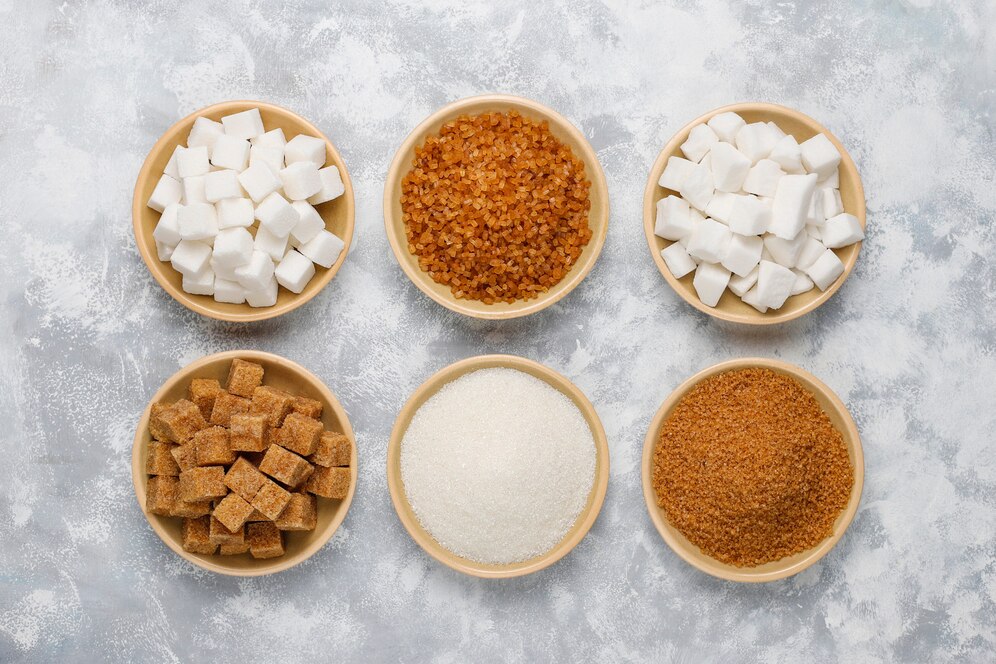Organic and non-organic products, are driven by increasing consumer awareness of health and environmental concerns. This trend has extended to the sugar industry, where consumers are seeking alternatives to conventionally produced sugar. In this article, we explore the logistics of organic sugar versus non-organic sugar, examining the differences in transportation, storage, and distribution, as well as the market preferences and challenges associated with each.
Organic vs. Non-Organic
Organic sugar is cultivated without the use of synthetic pesticides, herbicides, or genetically modified organisms (GMOs). In contrast, non-organic sugar may be produced using conventional farming methods that involve the application of synthetic chemicals. The distinction between organic and non-organic sugar lies not only in the cultivation process but also in the handling and processing practices employed throughout the supply chain.
Logistics Differences
The logistics of organic sugar and non-organic sugar differ primarily in the handling and transportation processes: Organic sugar must adhere to stringent certification standards set by regulatory bodies, requiring documentation and verification at each stage of the supply chain. This necessitates meticulous record-keeping and traceability measures to maintain organic integrity. To prevent commingling with non-organic products, organic sugar requires separate handling and storage facilities throughout the logistics network. Dedicated storage areas, vehicles, and processing equipment are essential to ensure compliance with organic certification standards. Organic sugar may incur additional transportation costs due to the need for segregated logistics channels and specialized handling requirements. Temperature-controlled transport may be necessary to preserve the integrity of organic products and prevent contamination.
Market Preferences
Consumer preferences play a significant role in driving the demand for organic sugar. Health-conscious consumers seeking natural and sustainably sourced products are driving the growth of the organic sugar market. Additionally, concerns about pesticide residues and environmental sustainability contribute to the appeal of organic sugar among environmentally conscious consumers.
Challenges
Despite the increasing demand for organic sugar, several challenges exist within the logistics landscape: Managing the logistics of organic sugar entails navigating a complex supply chain with stringent regulatory requirements and certification standards. Ensuring compliance and maintaining organic integrity throughout the supply chain poses logistical challenges for producers and distributors. The logistics of organic sugar often entail higher costs associated with certification, segregation, and transportation. Balancing the premium associated with organic certification against consumer demand and price sensitivity requires careful cost management and pricing strategies. Non-organic sugar remains prevalent in the market, posing competition to organic producers. Differentiating organic sugar through branding, certification, and marketing strategies is essential to capture market share and justify the premium price associated with organic products.
Conclusion
In conclusion, the logistics of organic sugar differ significantly from those of non-organic sugar, encompassing certification requirements, segregation practices, and transportation considerations. Despite the challenges associated with organic sugar logistics, the growing consumer demand for organic products presents opportunities for producers and distributors to capitalize on this trend. By understanding the distinct logistics requirements and market preferences for organic sugar, businesses can adapt their strategies to meet evolving consumer expectations and drive sustainable growth. For insights into future trends in sugar logistics, read our blog post on future trends in sugar logistics. Additionally, learn more about navigating the complexities of sugar logistics in our blog post on navigating the complexities of sugar logistics.

